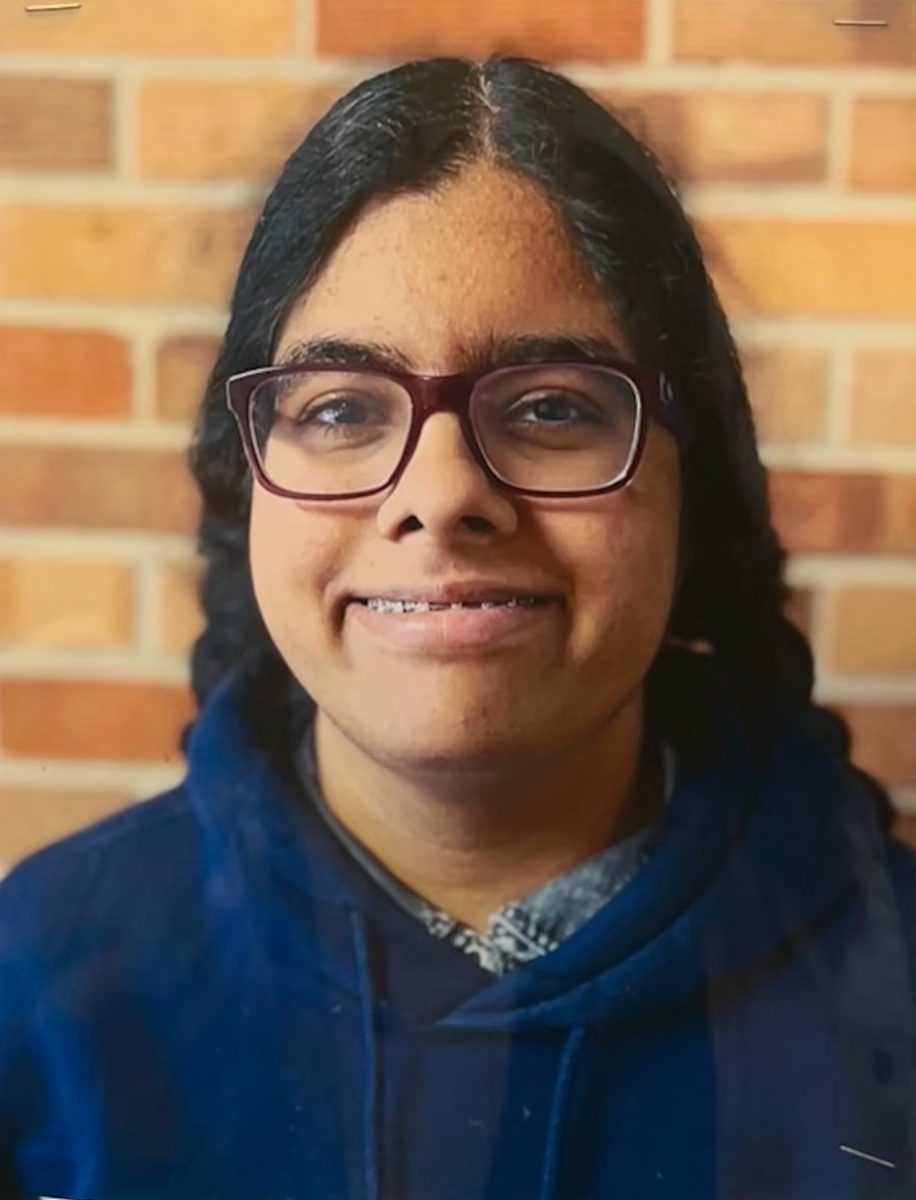Meet the Candidates: Democratic nominee for Vice President of the United States, Kamala Harris
November 2, 2020
Senator Kamala Harris has been a trailblazer and a pioneer in American politics, breaking barriers as a woman of color from her days as district attorney to nominee for Vice President of the United States.
Early Life:
Kamala Devi Harris was born on Oct. 20, 1964, in Oakland California to immigrant parents Shymala Gopalan Harris, a cancer researcher from India, and her father Donald Harris, an economist from Jamaica. Her parents had another daughter, Maya Harris, in 1967. Harris grew up in Berkeley, California, and fondly remembers her time as a child there. Harris was a part of the second class, of a national effort to desegregate schools, when she was bused to a school 40 minutes away from home in first grade, which she remembers experiencing. Harris’s parents divorced when she was seven years old and her mother gained custody of both she and her sister.
After moving to Quebec, Canada for a few years, Harris graduated from Westmount High school in Montreal, Quebec in 1981 and moved back to the United States for college at Howard University in Washington D.C. She graduated from Howard with a dual major in both political science and economics. Harris then went to the University of California Hastings College of the Law earning her Juris doctor (J.D) in 1989. The following year she was admitted to the California bar, the licensing agency for attorneys.
Early career and District Attorney (DA) of San Francisco :
After getting out of college, Harris started her career as Deputy District Attorney of Alameda county. During her time there, she became the managing attorney of the career criminal unit. Two years later, she joined the San Francisco attorney’s office and was appointed as the chief of the community and neighborhood division and she established California’s first bureau of children’s justice. During her tenure, she gained the reputation of being a tough prosecutor and many cited her as a potential contender for district attorney.
In 2003, Harris announced her intention to become the District Attorney of San Francisco, taking on the incumbent and her boss at the time, Terrence Hallinan. She won the race in 2004 and immediately got to work. During her time there, Harris worked to reform the criminal justice system in San Francisco and was labeled as a fairly progressive and popular prosecutor, compared to others nationally. Her record as district attorney has come under scrutiny several times over the handling of cases regarding the death penalty and drug offenses.
Attorney General of California:
In 2010, Harris announced her run for Attorney General (AG) of California, won by a narrow margin and was sworn in on Jan. 3, 2011, becoming the first woman and black and South Asian American to hold that post. Harris led the second largest Department of Justice in the United States, second only to the United States Department of Justice. Soon after being sworn in, she worked with other state attorneys general in cases following the 2008 recession and secured $25 billion for California homeowners after the foreclosure crisis. Under Harris’s tenure, the California DOJ became the first statewide agency to implement a body camera program. She also officiated the first same-sex wedding in California after Proposition 8 was initially enacted.
Her record as Attorney General has, at many times, been the subject of controversy for her contradictory positions and decisions, such as how she tried to push for programs that allowed for people to find jobs instead of putting them in prison and fought to put innocent people in jail even after being proven innocent. She refused to pursue the death penalty when a man killed a police officer, but also defended the California Death Penalty process in Court. Such contradictions have led many to criticize Harris for her policy positions over the years, specifically as Attorney General.
United States Senate:
In 2015, following the announcement that junior senator for California Barbara Boxer was not going to seek reelection, Harris became the first candidate for her seat. She made it past the primaries and won on Nov. 8, 2016, the same day as Donald Trump was elected President. Harris was sworn in on Jan. 3, 2017, and with that, she became the second black woman and the first South Asian American to serve in the U.S senate.
After being elected, she joined the Homeland Security committee, the select committee on intelligence, the judiciary committee, and the committee on the budget. She initially sponsored a single-payer healthcare system introduced by Sen. Bernie Sander, better known as “Medicare for All,” and supported the Green New Deal in her early days in the senate. She built a big reputation on the judiciary committee for her prosecutorial questioning style of Trump appointees in confirmation hearings, notably of Justice Brett Kavanaugh and Attorneys General Jeff Sessions and Bill Barr. Govtrackinsider, a nonpartisan website that tracks legislation and members of Congress, labeled Harris as “the most left-leaning U.S senator in 2019.”
In 2019, she published her memoir “The Truths We Hold.” She voted to convict President Trump following his impeachment trial on both counts in Jan, 2020. Trump was acquitted by the senate after Democrats failed to pass the threshold needed to convict. During much of the COVID-19 Pandemic, she has been an outspoken critic of the Trump administration’s handling of the virus, the economic recession and Criminal Justice in America. In May of this year, she along with her colleague Sen. Cory Booker of New Jersey, introduced the “Justice in Policing Act” following the death of Geroge Floyd to address policing in America.
Presidential and Vice Presidential Campaigns:
Throughout much of her career in Washington D.C, from 2017 to 2018, Harris was always seen as a top contender to be the Democratic nominee for President of the United States to take on President Trump, from both sides of the aisle, and had not denied a possible run. On Jan 21, 2020 on “Good Morning America” Harris announced her intention to run for the Democratic nomination. A week later, she formally launched her campaign at an event in her hometown of Oakland, California and according to police reports, 20,000 people attended her announcement which was even greater than president Barack Obama’s campaign launch in Springfield in 2007.
Harris stayed at the top of the polls for the first 6 months of the campaign becoming one of the better known candidates. In April, both Senator Bernie Sanders and future running mate Joe Biden also joined the race for president. In the first Democratic primary debate in June 2019, Harris made headlines for taking Joe Biden to task on his previous opposition to busing for school integration which she was a part of.
In the second Democratic debate, Harris was attacked for her record as a prosecutor and for her record as the Attorney general of California by Joe Biden and Congresswoman Tulsi Gabbard. Following the attacks on her record and for much of the remaining half of 2019 Harris’s support dwindled. In a final effort, Harris began to reorganize her campaign strategy, focusing most of her campaign in early primary states. Harris suspended her campaign December 3, 2019, 2 months before the Iowa Caucuses.
Following her presidential campaign Harris kept a lower profile in Washington D.C but was seen as a top contender to be Joe Biden’s running mate especially after he committed to picking a woman as his running mate during his final debate with Senator Bernie Sanders. On August 11th, Joe Biden announced Senator Kamala Harris as his running mate with the following statement.
“I have the great honor to announce that I’ve picked Kamala Harris – A fighter for the little guy, and one of the country’s finest public servants-As my running mate. Back when Kamala was Attorney General, she worked closely with Beau [His son who was the Attorney General of Delaware at the same time]. I watched as they took on the big banks, lifted up working people and protected women and kids from abuse. I was proud then and I’m proud now to have her as my partner in this campaign.”
Harris’s selection as Vice President (VP) made history as she became the first black woman and the first South Asian American to be on a major party presidential ticket. Harris is the third woman to be a vice presidential. After her selection, she drew criticism from many in both parties for her “flip flops” on policy positions and was deemed “too liberal” and “too conservative” at the same time.
On Oct. 7, 2020 Harris Debated Incumbent Vice President Mike Pence drew over 50.5 million viewers, making it the 2nd most watched Vice Presidential Debate in American history, second only to the 2008 VP debate between Joe Biden and Sarah Palin. Following the death of the late Justice Ruth Bader Ginsburg and announcement of Amy Coney Barret as her replacement, Harris had to set aside her work on the campaign trail for her job on the judiciary committee for the confirmation hearings for Judge Amy Coney Barrett. Justice Barett was confirmed and sworn in as a Supreme Court Justice on Oct. 26 2020.
Harris, just like many members of her party, supports law enforcement reforms given her role as the top law enforcement officer of California. Harris initially supported eliminating private insurance completely, opting for a government plan but has since changed her views to supporting to keep private insurance and include a public option. Harris, along with her running mate, both support addressing climate change. During her campaign for president, Harris supported significant gun reforms and the National Rifle Association (NRA) has said she supports “extreme gun control agendas.”
Harris has broken barriers throughout her career through her various achievements, her record as a prosecutor, attorney general, and senator, and her elections, including running for President and her current VP campaign. If elected Harris would become the first black woman and South Asian American elected to the executive branch.



